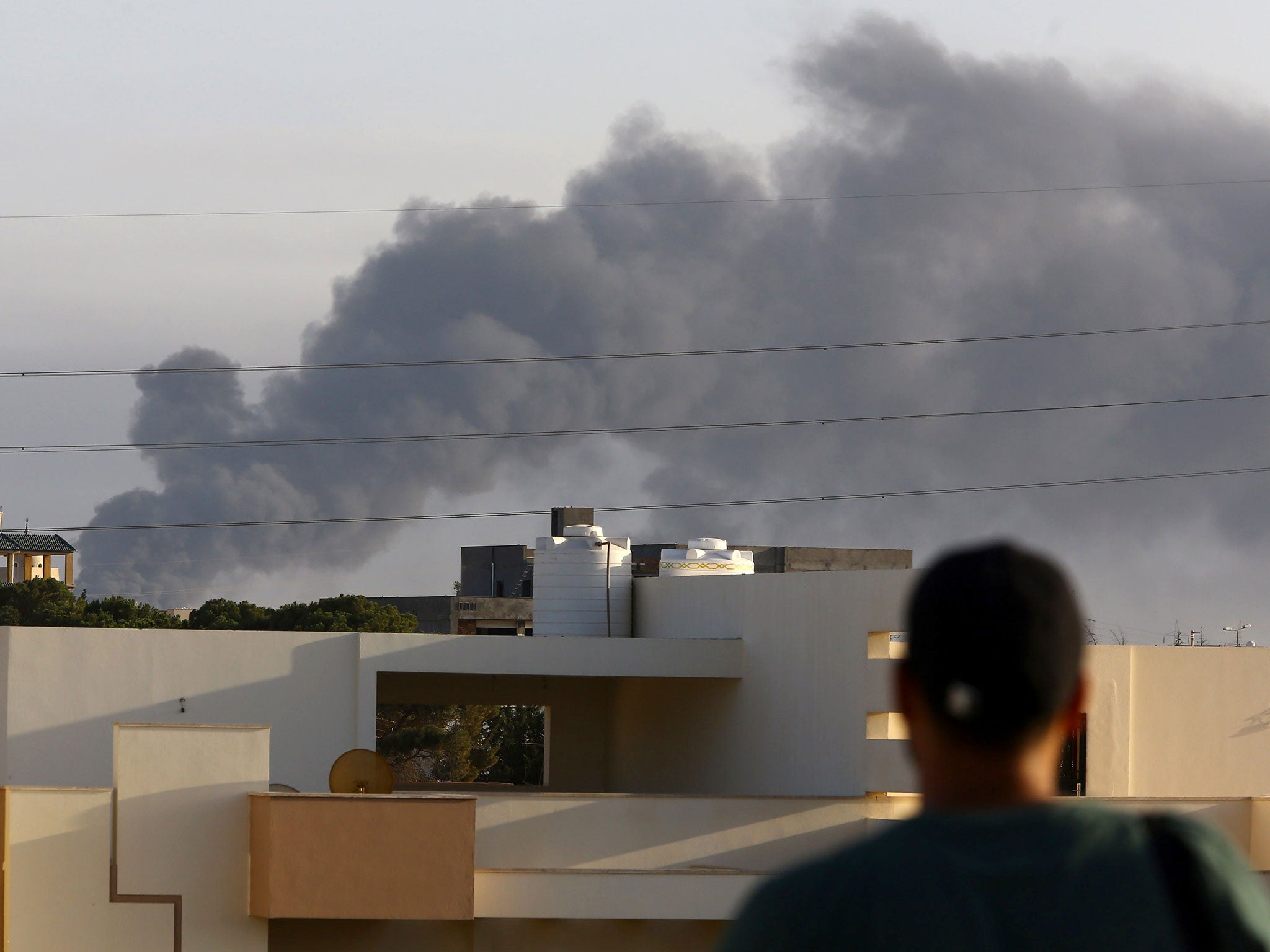US shuts down Tripoli embassy and evacuates staff in Libya capital
The decision by Washington comes after fighting between opposing militia groups intensified in the last week

Your support helps us to tell the story
From reproductive rights to climate change to Big Tech, The Independent is on the ground when the story is developing. Whether it's investigating the financials of Elon Musk's pro-Trump PAC or producing our latest documentary, 'The A Word', which shines a light on the American women fighting for reproductive rights, we know how important it is to parse out the facts from the messaging.
At such a critical moment in US history, we need reporters on the ground. Your donation allows us to keep sending journalists to speak to both sides of the story.
The Independent is trusted by Americans across the entire political spectrum. And unlike many other quality news outlets, we choose not to lock Americans out of our reporting and analysis with paywalls. We believe quality journalism should be available to everyone, paid for by those who can afford it.
Your support makes all the difference.The US has been forced to close its embassy and evacuate staff in Libya as fighting intensifies between rival militias.
According to reports, workers at the US embassy in Tripoli were taken out of the country by a US military escort and into neighbouring Tunisia on Saturday morning.
American personnel left the capital around dawn and were accompanied by US military aircraft that flew overhead to ensure their safe transportation to Tunisia. Details of the evacuation were not announced until all staff members were successfully moved out of the country.
The total number of staff was 230, which included 150 embassy workers and 80 marines.
In a statement released by US spokeswoman Marie Harf, she said: “Due to the on-going violence resulting from clashes between Libyan militias in the immediate vicinity of the US Embassy in Tripoli, we have temporarily relocated all of our personnel out of Libya.
“We did not make this decision lightly,” Harf said. “Security has to come first. Regrettably, we had to take this step because the location of our embassy is in very close proximity to intense fighting and on-going violence between armed Libyan factions.”
The decision to take embassy staff out of Libya comes as the fighting between militias supporting different interim prime ministers intensified this week.
On Monday, five people died during fierce fighting on the outskirts of Tripoli, with with militia groups fighting for control of the capital’s airport.
Following the fighting, Libya's Foreign Minister Mohamed Abdulaziz called on the UN and international community to offer more support or possibly face the consequences of Libya becoming a “failed state.”
The evacuation of staff was followed by an official statement from the US State Department that warned against Americans travelling to the country.
The decision to close the embassy is the second time in three years that Washington has decided to shut down operations in Tripoli. In February 2011, the embassy suspended operations amid the uprising that eventually toppled long-time leader Moammar Gadhafi.
Some commentators have called the current tensions the worst since the Libyan Civil War in 2011.
On Friday U.S. Ambassador to Libya, Deborah Jones, tweeted an appeal for fighting to stop near the embassy.
She posted: “We have not been attacked but our neighborhood a bit 2 close to the action.”
There has also been a spate of killings and kidnappings, with Libyan officials being targeted.
Last week, Gunmen kidnapped two judges in the suburbs of Tripoli, and on Friday popular political activist Moaz Banoun was kidnapped.
Join our commenting forum
Join thought-provoking conversations, follow other Independent readers and see their replies
Comments